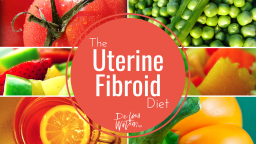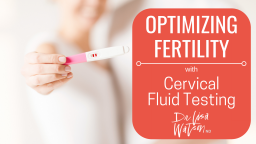
We believe we can get healthy by losing weight – but we need to be healthy to lose weight
Weight loss is a lot more than just watching what you eat and how much you exercise. While diet and exercise are essential components of a weight loss program, if your hormones are not in balance you will always be fighting against your body to lose fat and improve your body composition and health.
In this article I discuss some of the most important hormones for weight loss – our hormone helpers, and our hormone haters. For a more in depth look at your personal hormone balance, consider booking an appointment with a naturopathic doctor for individual testing and hormone assessment.
Weight Loss: Hormone Helpers
Thyroid Hormone
 Thyroid hormones are our metabolism masters – they control the rate of energy production (metabolism) throughout the body. When thyroid hormones are too low symptoms of fatigue and weight gain can occur. When thyroid hormones are too high symptoms of anxiety, jitteriness and weight loss are common.
Thyroid hormones are our metabolism masters – they control the rate of energy production (metabolism) throughout the body. When thyroid hormones are too low symptoms of fatigue and weight gain can occur. When thyroid hormones are too high symptoms of anxiety, jitteriness and weight loss are common.
The optimal range for TSH (a measure of thyroid function) for weight loss is 0.75-2.5. Outside of this range can alter metabolism and make weight loss difficult.
Glucagon
Glucagon hormone works with insulin to balance blood sugar – insulin rises when blood sugar is high, glucagon rises when blood sugar is low. Improving glucagon levels helps us to keep our blood sugar stable and support weight loss.
Not surprisingly, activities that support stable blood sugar can improve glucagon levels. Specifically exercise and healthy protein consumption can increase glucagon levels while a diet high in sugar decreases glucagon.
Growth Hormone
Growth hormone is produced throughout our lifetime although it’s production is highest during our younger years. Growth hormone is necessary for tissue repair, muscle building and improving the density of bone.
The majority of growth hormone is produced overnight but it is also produced during exercise. Low levels of growth hormone (associated with poor sleep, eating too close to bed and lack of exercise) can lead to fatigue, depression, cholesterol imbalances, and abdominal weight gain.
Leptin
One of our weight-loss helpers, leptin is our appetite-suppressing, full-sensation hormone. It is released by fat cells and communicates with our brain that we have had enough to eat.
We can improve our leptin levels through our lifestyle. Sleep, regular exercise, sufficient calories from our food and weight loss all help to balance leptin and improve our body composition.
We can also sabotage our leptin balance through our lifestyle choices. A regular intake of excess saturated fat and sugar leads to “leptin resistance”. When this occurs the brain no longer respond to high circulating levels of leptin and allows you to keep eating despite not being hungry.
Weight Loss: Hormone Haters
Ghrelin
 Ghrelin works very closely with leptin to maintain our body weight. Ghrelin is the hunger hormone, produced when your digestive tract is empty. If you stomach is growling, ghrelin is being produced.
Ghrelin works very closely with leptin to maintain our body weight. Ghrelin is the hunger hormone, produced when your digestive tract is empty. If you stomach is growling, ghrelin is being produced.
Ghrelin tells our brain when we’re hungry, and leptin tells us when we’re full.
Cortisol
Cortisol is most commonly known as our “stress hormone”. It is produced in high levels during stress, but our bodies produce varying levels over the course of every day.
High levels of cortisol can influence our eating habits and our hormone balance. People with elevated cortisol often crave sugary and salty foods, leading to an increase in insulin levels and all the symptoms associated with that imbalance.
Cortisol also stimulates a process in the liver known as “gluconeogenesis” – our body makes sugar to provide us fuel to get away from our stress. If we don’t use this extra sugar (by exercising) it gets deposited as fat around our midsection.
Insulin
Insulin helps our cells get energy in the form of sugar. When we eat foods that contain sugar (fruits, vegetables, grains, processed foods) our body releases insulin as a way of controlling blood sugar levels – getting the sugar out of the blood stream and into our cells.
When insulin levels are too high our cells can become less sensitive to it’s effects – leading to ‘insulin resistance’. This then leads to cravings for more sugar to meet the needs of our cells. And more insulin is released, and a vicious cycle ensues.
High levels of circulating insulin are associated with weight gain (especially around the belly). When you have excess insulin you can not burn fat as energy – your body will just demand more sugar to bring the insulin levels down. This makes losing abdominal fat almost impossible.
Serotonin
Serotonin is one of our feel-good neurotransmitters (along with dopamine and norepinephrine). When serotonin is out of balance symptoms of anxiety and depression are common. These emotions contribute negatively to weight loss by altering our motivation, drive, commitment and self esteem.
The depression associated with low serotonin leads to increases in inflammation and cortisol levels – both of which make it harder for our body to burn fat as fuel and lose weight.
Low levels of serotonin also decrease mood and lead us to crave foods that are rich in carbohydrates – a source of tryptophan, which our body uses to create serotonin.
Estrogen
Estrogen is the most common female hormone (although men have it too!) It is produced mainly in the ovaries but fat cells also produce large quantities of estrogen. High levels of estrogen, or “estrogen dominance” is as great a risk factor for obesity as having a poor diet or not exercising.
Estrogen balance is greatly impacted by our lifestyle and environment. Exposure to chemical estrogen-mimicking compounds, alcohol consumption, a high fat diet, lack of exercise and sleep deprivation can all lead to abnormally high levels of estrogen.
Hormones are incredibly important for our overall health, energy and metabolism. If you are struggling to lose weight, or are stuck at a weight loss plateau, perhaps hormones are your issue. Book a free 15 minute consultation now to discuss your options, and get your hormones back in balance.
Disclaimer
The advice provided in this article is for informational purposes only. It is meant to augment and not replace consultation with a licensed health care provider. Consultation with a Naturopathic Doctor or other primary care provider is recommended for anyone suffering from a health problem.
















